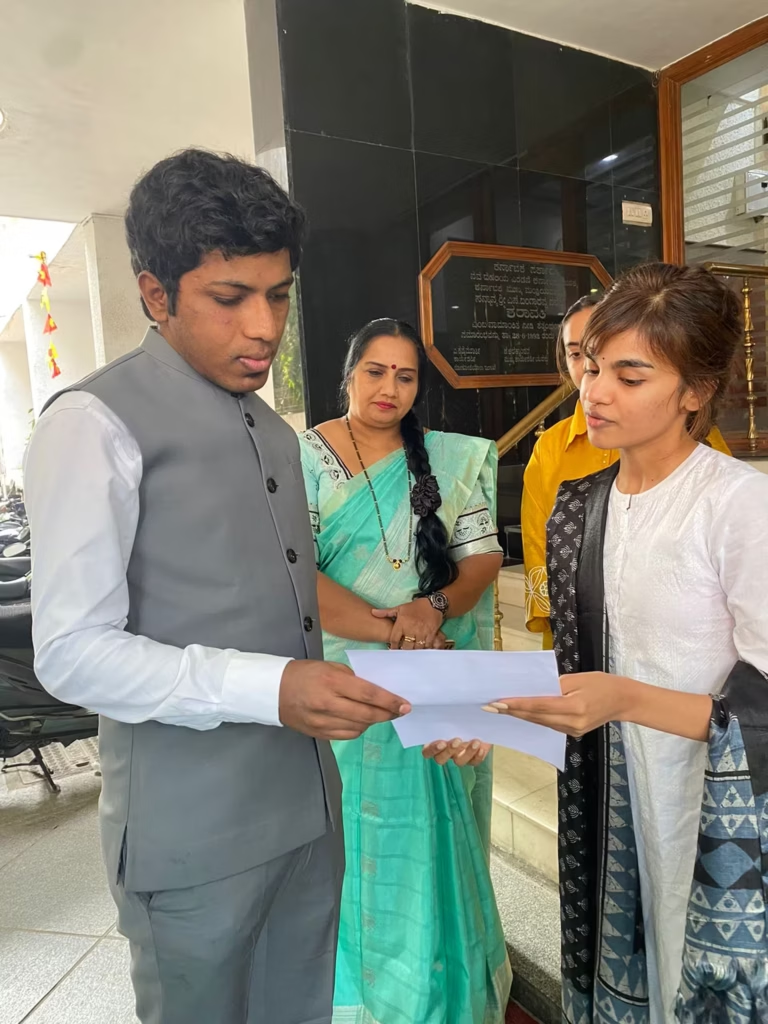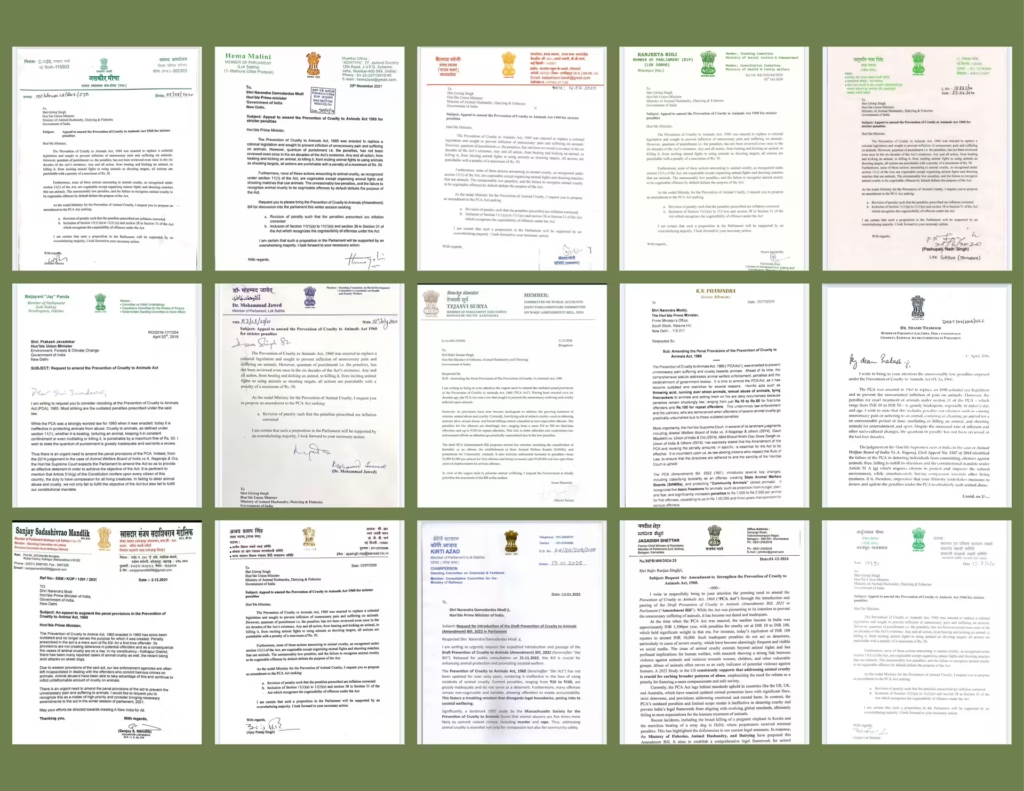Across India, acts of animal cruelty are disturbingly common—from brutal beatings to fatal poisonings, burnings, and worse. Yet the maximum penalty under our current animal protection law, the Prevention of Cruelty to Animals Act, 1960, is a mere ₹50 for first-time offenders.
This gap between public outrage and legal accountability is exactly what the #NoMore50 campaign seeks to change. The campaign calls for stronger penalties and justice for animals through the Prevention of Cruelty to Animals (Amendment) Bill, 2022 introduced by the Ministry of Fisheries, Animal Husbandry and Dairying.
As part of a structured advocacy assignment, Ahimsa Fellows stepped into action—meeting Members of Parliament (MPs) across the country to raise awareness about the outdated law and request formal Letters of Support for the amendment.
If you’d like to first understand what the PCA Act is, how it works, and why it urgently needs reform, check out our companion blog:
👉 Understanding India’s Prevention of Cruelty to Animals Act, 1960 and the Need for Reform
This post focuses on how Fellows took that knowledge and turned it into real-world advocacy—connecting grassroots action with the power of government.
Why Engage MPs?
For any amendment to become law, it must be introduced, debated, and passed by Parliament. MPs—the elected voices of India’s people—play a crucial role in shaping and supporting such legislation.
The Prevention of Cruelty to Animals (Amendment) Bill, 2022 proposes updated, meaningful penalties for animal cruelty, making enforcement viable and impactful.
By encouraging MPs to back the bill, citizens and advocates can help create the political will needed to table and pass it.
Advocacy in Action: What the Fellows Did
As part of their Fellowship, Ahimsa Fellows were given a real-world assignment: engage with MPs in their constituencies and build support for the PCA Amendment Bill.
Here’s how they approached it:
📚 Step 1: Preparation and Research
Fellows began by studying the existing PCA Act and understanding the proposed amendments. They also learned about the functioning of Parliament, how to secure meetings with MPs, and how to communicate complex issues clearly and respectfully.
Each Fellow researched their MP’s background—including their past statements, committee work, and public interests—to tailor their pitch.
🗣️ Step 2: Outreach and Meetings
Fellows contacted MPs through emails, phone calls, and by visiting their offices. Their ask was simple but significant:
“Will you sign a Letter of Support urging the Prime Minister to table the Draft PCA (Amendment) Bill, 2022?”
While some MPs were cautious—due to political, social, or religious considerations—many were receptive. Fellows shared brief, focused documents and answered questions with data and empathy.

✍️ Step 3: Securing Letters of Support
Since 2023, over 170 MPs have issued Letters of Support, requesting that the bill be introduced in Parliament. These letters are a critical form of political endorsement and signal growing momentum for the amendment.

“170+ Letters of Support from MPs delivered to the Prime Minister”
What Fellows Learned
This assignment was more than policy—it was a lesson in patience, persistence, and political engagement. Fellows saw how policy change is both possible and painstaking, and how data, compassion, and follow-up can influence decision-makers.
They also saw that many MPs care deeply—but need public encouragement to take a stand.
The Work Isn’t Over: Here’s How You Can Help
MP engagement shouldn’t stop with the Fellows. You can take the baton forward.
✅ Step 1: Find Your MP
Use this tool to identify your local MP:
👉 https://prsindia.org/mptrack
✅ Step 2: Write or Email Them
Ask your MP to support the PCA Act Amendment by signing a letter to the Prime Minister.
Use this Letter of Support Template.
Include:
-
- A brief explanation of the issue
-
- The PCA (Amendment) Bill, 2022: Download the PDF and take 3 copies it along with you — one for you and 2 for the MP.
- Your name and city
✅ Step 3: Follow Up
Don’t give up after one message. Try calling their office or requesting a meeting as a concerned constituent.
✅ Step 4: Amplify Their Support
If your MP agrees, ask if you can share their letter on social media. Tag them, the PMO, and use #NoMore50 to inspire others to act.
In Closing
The Prevention of Cruelty to Animals Act, 1960 no longer meets the needs of today’s India. As this Fellowship assignment showed, citizens—especially young advocates—can play a powerful role in shaping the laws that govern compassion and justice.
Through this assignment, Fellows helped build a foundation of political support that continues to grow. Now, it’s up to all of us to build on that momentum, speak up, and make sure our elected representatives act.
Let’s ensure no one walks away from cruelty with just a ₹50 fine ever again.

